
THE reasons the UK veterinary industry acted as it did in this year’s equine flu (EI) outbreak and the decision-making behind six-month booster requirements have been explained by an expert.
Dr. Richard Newton, director of epidemiology and disease surveillance at the Animal Health Trust (AHT), spoke about what UK vets have learnt from the 2019 outbreak at an event at the British Racing School on 19 November.
The take-home messages were that despite advice, some horse owners are not either believing in or complying with the six-month booster recommendation.
Dr. Newton said the strain responsible for the outbreaks this year, and the way it moved across Europe, were behind the decision to shut down racing in February.
“We were seeing a different picture emerging in Europe,” he said, explaining that the decision was not based on the situation in the UK alone and that vets were seeing clinical signs in vaccinated horses in Europe. “This is when the alarm bells rang.”
The strain was also different to the flu usually seen in the UK and Europe — this was Florida clade 1, as opposed to Florida clade 2.
“In 2019, we witnessed the largest epidemic in Britain and Europe in 30 years,” he said.
“What we hadn’t counted on, was the second wave taking off in April through May, which peaked in the last week of June. This made headlines and events started to take stock and were cancelled.
“A large proportion of the UK has had flu diagnoses at some point this year. There were also reports of airborne spread, which is the first in my time at the AHT.
Denne historien er fra November 28, 2019-utgaven av Horse & Hound.
Start din 7-dagers gratis prøveperiode på Magzter GOLD for å få tilgang til tusenvis av utvalgte premiumhistorier og 9000+ magasiner og aviser.
Allerede abonnent ? Logg på
Denne historien er fra November 28, 2019-utgaven av Horse & Hound.
Start din 7-dagers gratis prøveperiode på Magzter GOLD for å få tilgang til tusenvis av utvalgte premiumhistorier og 9000+ magasiner og aviser.
Allerede abonnent? Logg på
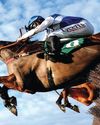
Gemirande provides 24-carat magic
Venetia Williams sparkles again in the December Gold Cup and jockey brothers dead-heat
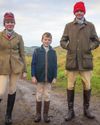
‘Happy hunting, everyone'
“The season for talks, dinners and parties has finally arrived for Tessa Waugh, whose distress about the snags of middle age fades away with some rousing festive spirits
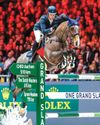
'Monaco deserved this victory
Seemingly destined always to play the bridesmaid’s role, Harrie Smolders’ great partner Monaco finally tops an incidentpacked Rolex grand prix

'It had to end sometime'
The closure of beloved Hampshire saddlery Calcutt Sons is a loss to the hunting and wider equestrian worlds, as Octavia Pollock reports
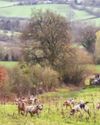
'You couldn't want for more
The Ludlow's peaceful country makes for a day in \"hunting paradise\"
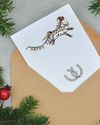
The greatest gift of all
Christmas is fast approaching and while we all like a bit of tinsel, the festive season is also a perfect time for giving to a horse charity. Niki Hinman finds out some of the options
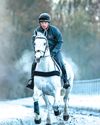
Winter him well
A horse's winter routine can differ dramatically from his summer structure but what’s the knock-on effect? Ellie Hughes asks vets how to optimise routine management for the season
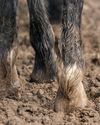
Neat feet
Excellent hoof care is a year-round concern but the winter months present their own problems. Richard Stephenson MRCVS explains the seasonal challenges afoot and how to stay one step ahead
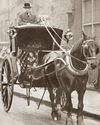
In bygone days
Modern vets have much scientific knowledge behind them, but what about their forebears? Kieran O’Brien MRCVS opens up the world of Victorian vets in London
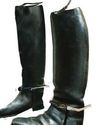
'When I joined the Pony Club it was just two boys and 48 girls'
Pepsi Kohler on being delightfully outnumbered by girls in the Pony Club, a leg-up from a royal and the H&H advert that changed his life